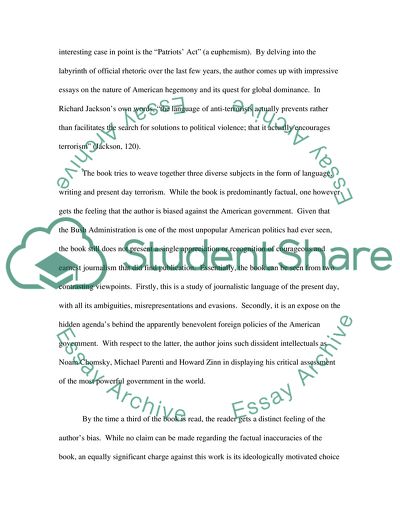Cite this document
(Book Review of Writing the War on Terrorism Coursework, n.d.)
Book Review of Writing the War on Terrorism Coursework. https://studentshare.org/literature/1712099-book-review-of-writing-the-war-on-terrorism
Book Review of Writing the War on Terrorism Coursework. https://studentshare.org/literature/1712099-book-review-of-writing-the-war-on-terrorism
(Book Review of Writing the War on Terrorism Coursework)
Book Review of Writing the War on Terrorism Coursework. https://studentshare.org/literature/1712099-book-review-of-writing-the-war-on-terrorism.
Book Review of Writing the War on Terrorism Coursework. https://studentshare.org/literature/1712099-book-review-of-writing-the-war-on-terrorism.
“Book Review of Writing the War on Terrorism Coursework”. https://studentshare.org/literature/1712099-book-review-of-writing-the-war-on-terrorism.


